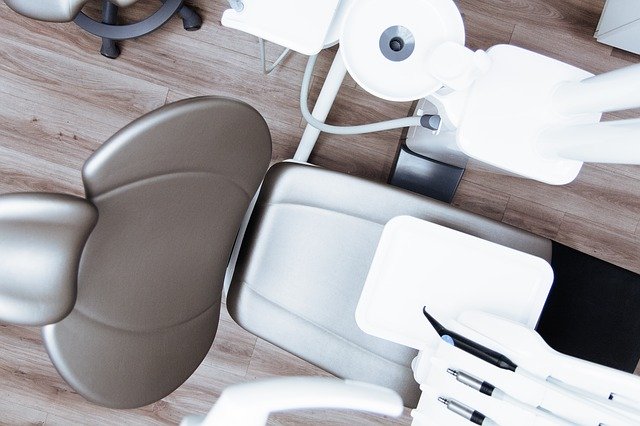
23 Apr What Is Oral Cancer?
Oral cancer isn’t something most people think about until it affects them or someone close to them. That’s part of the problem. It’s not rare, either. Thousands of people are diagnosed with it every year. The good news? It’s treatable, especially when caught early.
Sugary Drinks May Increase Your Risk
You already know sugar isn’t great for you. But did you know it could be linked to oral cancer? A recent study published in JAMA Otolaryngology looked into this. The researchers found that women who drink sugary beverages, like soda or sweetened tea, have a much higher risk of developing oral cavity cancer. Women who had at least one sugary drink per week had nearly five times the risk compared to women who had fewer than one per month. And no, this wasn’t just about smokers or heavy drinkers. This risk applied even to women who didn’t smoke or drink alcohol. That is very surprising!.
The researchers suggest a few reasons why sugar might be a culprit. One theory? Too much sugar may increase chronic inflammation, which has been linked to cancer growth. Another idea is that sugar might disrupt the balance of healthy bacteria in your mouth. This doesn’t mean a single soda will give you cancer. But if sugary drinks are a regular thing for you, it might be time to cut back.
Even simple changes, like switching to unsweetened tea or water, can help. It’s not just about your waistline anymore. It might be about cancer prevention too.
Oral Cancer Can Show Up In Different Parts of Your Mouth
When people hear “oral cancer,” they usually think of the tongue. But that’s just one spot where it can start. Oral cancer can affect several different parts of the mouth. This includes lips, gums, the inside of your cheeks, the roof of your mouth, the floor of your mouth, and your tongue. It starts with abnormal cell growth in these areas. Left untreated, those cells can form tumors and spread to other parts of the body.
Some signs to look out for: a sore that won’t heal, a lump or thick patch, or pain that doesn’t go away. You might also notice changes in how your teeth fit together or how your dentures sit. Even if something seems small, like a white patch or mild irritation, get it checked out if it sticks around. That’s the big takeaway here. Oral cancer isn’t one-size-fits-all. It doesn’t always look the same or show up in the same place. That’s why it’s often overlooked. Being aware of your whole mouth, not just your teeth, can help you spot signs early. And early detection makes a huge difference.
Treatment Depends on Where It Is and How Far It’s Spread
There’s no “one way” to treat oral cancer. It really depends on a few key things like where the cancer is, how big the tumor is, whether it has spread, your overall health, and a few common treatment paths. Surgery is often the first step. Doctors try to remove the tumor and any cancerous tissue. In some cases, this includes parts of the tongue, jaw, or throat. Radiation therapy is another option. This uses high-energy beams to kill cancer cells. It might be used alone or after surgery.
Chemotherapy is sometimes added, especially if the cancer has spread. This uses drugs that attack cancer throughout your body. In more advanced cases, targeted therapy or immunotherapy might be used. These newer approaches aim to attack cancer cells without damaging healthy ones. Sometimes, treatment is a mix of these. Doctors often combine surgery with radiation or chemotherapy to increase the chances of success. Recovery isn’t just about removing the cancer, though. It’s also about restoring function. Some people need speech therapy, dental work, or reconstructive surgery after treatment. It’s a lot, but many people do well. They can do especially well when the cancer is caught early.
Regular Dental Visits Are Crucial for Early Detection
You might not think of your dentist as someone who checks for cancer. But they do when you go in for a cleaning. Routine dental exams are critical for spotting oral cancer early. That’s because your dentist sees parts of your mouth you can’t see on your own. During a standard exam, they’re looking for unusual sores or patches, changes in tissue color, lumps or swelling, and signs of infection or bleeding. If something looks off, they might refer you to a specialist or order a biopsy.
This check usually takes less than a minute. You probably don’t even realize it’s happening. So don’t skip dental appointments even if you think your teeth are fine. Your dentist might catch something you’d never notice. And if you see or feel anything odd between visits, say something! Pain, sores, or bleeding that lasts more than two weeks isn’t normal. It’s better to be safe.
Your Odds Improve a Lot with Early Diagnosis
Here’s the most encouraging news: early detection really does save lives. If the cancer is caught early and hasn’t spread, survival rates can go as high as 84% or more, depending on the site. For example, early-stage lip cancer has a 94% survival rate. But once the cancer spreads to lymph nodes or other organs, the odds drop fast. That’s why all the stuff we’ve talked about, checking your mouth, going to the dentist, cutting sugar, is so important. These small habits can lead to a much earlier diagnosis. And that can literally save your life.
Conclusion
Oral cancer is a real risk, but it doesn’t have to be a death sentence. Not if you stay aware and take action. To recap:
- Watch your sugar intake
- Know the signs and symptoms
- Understand how treatment works
- Keep up with dental visits
- Don’t wait to get things checked
- Catch it early, and you give yourself the best chance.
Got questions or concerns? Talk to Athens Family Dental today and schedule an appointment – our excellent dentists can help you detect early signs and begin necessary treatment. The earlier, the better.

About Our Team
Our team at Athens Family Dental is passionate about improving lives through better oral health as well as educating our patients.
Come see why we’re Athens, TN top choice for dentists!

Sorry, the comment form is closed at this time.